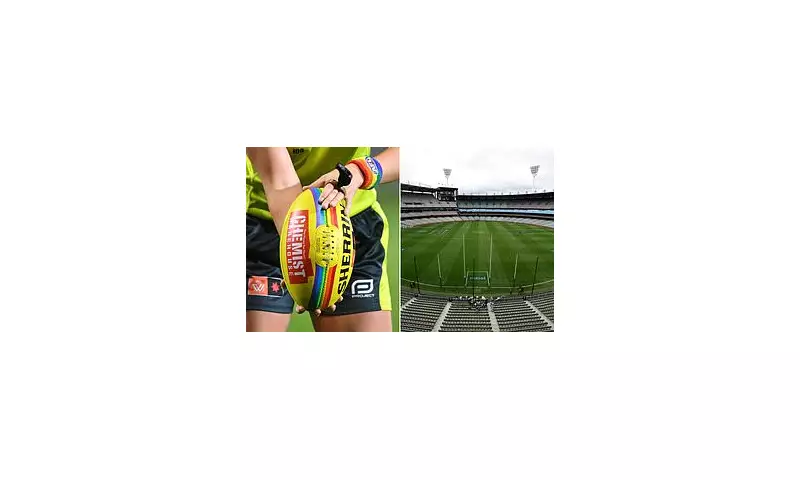
In a courageous and deeply personal revelation, Adelaide Crows forward Izak Rankine has exposed the disturbing reality of homophobic abuse within the Australian Football League (AFL). The elite player disclosed that he has been subjected to homophobic slurs from opposition players during matches, despite not identifying as gay himself.
The 23-year-old indigenous star made the shocking claims during an appearance on the 'You Cannot Be Serious' podcast, sending shockwaves through the sporting community. Rankine's testimony suggests that homophobic language remains prevalent in the high-pressure environment of professional Australian Rules Football.
The Disturbing Incidents
Rankine revealed that the homophobic abuse occurred during the heat of competition, with opposition players using derogatory terms in an attempt to gain a psychological advantage. "I've had a couple of players say some homophobic slurs towards me," Rankine stated, highlighting how such language is still weaponised on the field.
What makes these incidents particularly concerning is that Rankine isn't gay, indicating that homophobic slurs are being used generically as insults rather than targeted at actual LGBTQ+ individuals. This demonstrates how deeply embedded such language has become in sporting culture.
AFL's Ongoing Battle Against Discrimination
The revelation comes despite the AFL's public efforts to promote inclusivity and diversity within the sport. The league has implemented various initiatives and pride rounds aimed at creating a more welcoming environment for all players, regardless of sexual orientation.
However, Rankine's experience suggests that behind the public relations campaigns, a culture of homophobia persists in the trenches of professional competition. This disconnect between official policy and on-field reality presents a significant challenge for league administrators.
The Impact on Players and the Sport
Rankine's disclosure raises serious questions about the emotional well-being of players who might identify as LGBTQ+ and are forced to compete in an environment where such language is tolerated. The use of homophobic slurs, even when not directed at gay players, creates a hostile atmosphere that could prevent athletes from feeling comfortable being their authentic selves.
The AFL has faced criticism in recent years for its slow progress in creating truly inclusive environments, with no openly gay male players currently active in the league. Rankine's testimony adds urgency to calls for more effective education and stricter enforcement of anti-discrimination policies.
As the AFL continues to promote itself as a progressive sporting organisation, Rankine's revelations serve as a stark reminder that changing deep-seated cultural attitudes requires more than symbolic gestures. The league now faces increased pressure to address this issue head-on and ensure that all players can compete without fear of discrimination or abuse.





